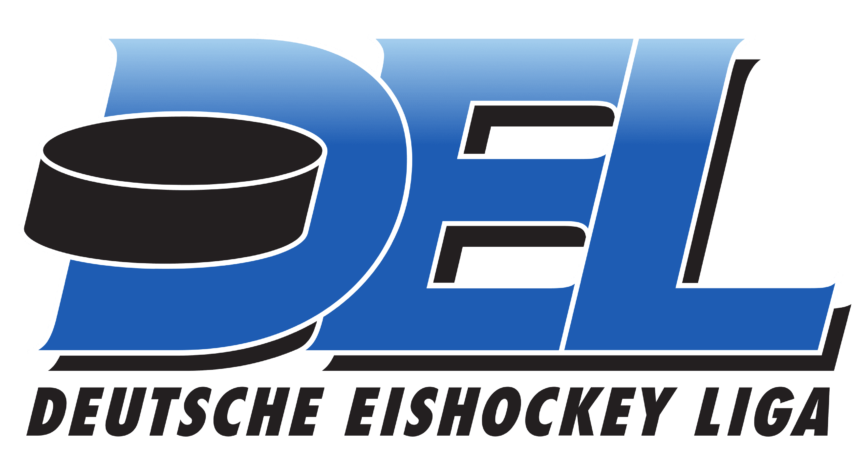Introduction to the Deutsche Eishockey Liga (DEL)
Are you ready to dive into the exhilarating world of ice hockey in Germany? Get ready to be swept away by the rich history and thrilling evolution of the Deutsche Eishockey Liga, better known as DEL! From its humble beginnings to becoming one of Europe’s premier ice hockey leagues, this captivating journey is sure to leave you on the edge of your seat. So grab your sticks and lace up your skates as we unveil the fascinating story behind DEL’s rise to fame. Let’s drop the puck and get started!
The Origins of DEL: From Oberliga to Bundesliga
The origins of Deutsche Eishockey Liga (DEL) can be traced back to the early days of German ice hockey. It all began in 1958 when the Oberliga, Germany’s top ice hockey league at the time, was established. However, it wasn’t until 1994 that DEL officially came into existence.
In its early years, DEL faced numerous challenges and underwent significant changes. The league expanded from just eight teams to eventually include 14 teams by the late 1990s. This growth brought about increased competition and raised the overall level of play in German ice hockey.
One major milestone in DEL’s history was its transition from being known as Bundesliga to becoming Deutsche Eishockey Liga. This shift not only reflected a rebranding effort but also signified a new era for professional ice hockey in Germany.
Over the years, several key teams and players have left their mark on DEL. Teams like Eisbären Berlin and Adler Mannheim have consistently been successful and garnered loyal fanbases. Players such as Marco Sturm and Jochen Hecht have become legends within German ice hockey circles for their contributions to both domestic competition and international play.
Throughout its journey, DEL has witnessed notable moments and achievements that have shaped its legacy. Memorable playoff battles, record-breaking performances, and thrilling championship victories have captivated fans across Germany.
However, no journey is without obstacles, including controversies faced by DEL over the years. From financial struggles affecting certain clubs to disputes between team owners and league management, these challenges have tested the strength of German ice hockey’s premier league.
Today, DEL enjoys a dedicated fanbase with passionate supporters filling arenas throughout Germany during game nights. The league continues to grow in popularity as it attracts talented players from around Europe and beyond.
| Upcoming season or competition: |
|
| Formerly | Eishockey-Bundesliga |
|---|---|
| Sport | Ice hockey |
| Founded | 1994 |
| No. of teams | 14 |
| Country | Germany |
| Most recent champion(s) |
EHC Red Bull München (4th title) (2022–23) |
| Most titles | Eisbären Berlin (9 titles) |
| TV partner(s) | Magenta Sport ServusTV |
| Level on pyramid | Level 1 |
| Relegation to | DEL2 |
| International cup(s) | Champions Hockey League |
| Related competitions |
DEL2
Oberliga |
| Official website | penny-del.org |
Major Changes and Developments in DEL over the Years
y Liga (DEL) has experienced significant changes and developments since its inception. One of the major milestones was the transition from Oberliga to Bundesliga in 1994, which elevated German ice hockey to a new level of competitiveness. This move allowed for more structured league play, attracting top talent from around the world.
Over time, DEL expanded its reach by adding more teams, resulting in increased competition and fan engagement. The introduction of playoffs further intensified the excitement, as teams battled their way to claim the coveted championship title.
In recent years, DEL embraced technological advancements by implementing video replay systems and introducing a salary cap to promote financial stability among clubs. These changes have not only improved game fairness but also helped attract international players seeking high-quality competition.
The league’s commitment to youth development is another notable aspect that has contributed to its growth. Establishing junior programs and investing in grassroots initiatives has nurtured local talent while fostering a strong hockey culture across Germany.
Furthermore, DEL’s efforts towards increasing accessibility have paid off with greater media coverage both domestically and internationally. The introduction of live streaming platforms allows fans worldwide to follow their favorite teams and players closely.
As it continues to evolve, DEL faces ongoing challenges such as maintaining financial sustainability for all clubs and expanding its fan base beyond traditional hockey markets. However, with strategic planning and innovative ideas like outdoor games or collaboration with other European leagues, there are endless possibilities for future growth.
The rich history of Deutsche Eishockey Liga serves as a testament to its enduring legacy within German sports culture. With each passing year bringing exciting changes and developments on multiple fronts – from rule modifications on ice surfaces through technological advancements off-ice – it is evident that this league will continue thriving well into the future.
Key Teams and Players in DEL History
When it comes to the Deutsche Eishockey Liga (DEL), there have been several key teams and players who have left a significant mark on the league’s history. These teams and players have not only showcased their exceptional skills but also contributed to the growth and popularity of ice hockey in Germany.
One of the most successful teams in DEL history is Eisbären Berlin. Founded in 1954, they have won numerous championships over the years, solidifying their position as one of the top teams in German ice hockey. With a strong roster consisting of talented players like Sven Felski and Stefan Ustorf, Eisbären Berlin has consistently impressed fans with their skillful gameplay.
Another noteworthy team is Adler Mannheim, known for its rich history and passionate fanbase. Established in 1938, Adler Mannheim has seen great success throughout its existence. Led by legendary players such as Jochen Hecht and Ronny Arendt, they have clinched multiple titles and cemented themselves as perennial contenders.
In addition to these powerhouse teams, there are several standout players who have made a name for themselves in DEL history. One such player is Erich Kühnhackl, often referred to as “Mr. Eishockey” due to his immense contributions both on and off the ice. Kühnhackl’s skillset was unparalleled during his playing career, earning him recognition as one of Germany’s greatest ice hockey talents.
Another notable player is Marco Sturm, who captained Team Germany during numerous international tournaments while also making an impact domestically with various clubs including Cologne Sharks (now Kölner Haie). Sturm’s speed, agility, and leadership qualities set him apart from other players during his time in DEL.
These are just a few examples among many others who have left an indelible mark on DEL’s rich history. Each team had its own unique style of play, while players brought their individual talents and passion to the ice
Notable Moments and Achievements in DEL
The Deutsche Eishockey Liga (DEL) has had its fair share of memorable moments and impressive achievements over the years. From thrilling games to record-breaking performances, here are some highlights from the rich history of DEL.
One unforgettable moment occurred during the 2013-2014 season when Adler Mannheim clinched their seventh championship title. It was a hard-fought battle, with Mannheim defeating ERC Ingolstadt in a thrilling seven-game series. The victory not only showcased Mannheim’s resilience but also solidified their status as one of the most successful teams in DEL history.
Another historic achievement came in 2006 when Eisbären Berlin became the first German team to win the prestigious European Trophy. This accomplishment put German ice hockey on the international stage and cemented Eisbären Berlin’s reputation as an elite team.
In terms of individual achievements, Patrick Reimer deserves special mention. The Nuremberg Ice Tigers forward holds several records in DEL, including being the league’s all-time leading goal scorer and point producer. Reimer’s exceptional skills and consistent performance have made him a true legend in German ice hockey.
Additionally, we cannot forget about goaltender Dennis Endras’ incredible performance during the 2010 IIHF World Championship. As part of Team Germany, Endras played a crucial role in leading his country to an unexpected silver medal finish – their best result since winning Olympic gold back in 1976.
These notable moments and achievements demonstrate both the level of talent within DEL and how far German ice hockey has come on both national and international stages. With each passing year, new milestones are set, further elevating this captivating sport that continues to draw fans from around Germany and beyond.
Challenges and Controversies Faced by DEL
Over the years, the Deutsche Eishockey Liga (DEL) has faced its fair share of challenges and controversies, which have tested its resilience and shaped its development. One notable challenge that DEL has grappled with is maintaining financial stability for the league and its teams. As ice hockey requires significant financial resources to operate effectively, finding sponsors and securing solid revenue streams has been a constant struggle.
Another hurdle that DEL has encountered is keeping up with the increasing competitiveness of other European leagues. With top players often leaving for more lucrative contracts abroad, retaining talent within Germany’s domestic league has proven difficult at times. This exodus not only weakens team rosters but also poses a threat to the overall quality of play in DEL.
Controversies have also arisen within the league over issues such as player safety and discipline. Some critics argue that officiating can be inconsistent at times, leading to controversial calls or missed penalties. Additionally, player injuries resulting from physical play have sparked debates regarding appropriate levels of aggression on the ice.
Moreover, like many sports organizations globally, DEL faces occasional scandals related to doping or unethical behavior by athletes or team officials. These incidents tarnish the reputation of both individuals involved and undermine public trust in fair competition.
Despite these challenges and controversies, it is important to acknowledge that they are part of any professional sports league’s journey towards growth and improvement. The Deutsche Eishockey Liga continues to address them head-on while striving for excellence in all aspects: financial stability, player development, fan experience, fairness on-ice conduct – ensuring a bright future for German ice hockey fans everywhere!
The Current State of DEL: Popularity, Fanbase, and Future Plans
Popularity is soaring for the Deutsche Eishockey Liga (DEL), as it continues to capture the hearts of ice hockey enthusiasts across Germany. With its thrilling matches and passionate fanbase, the league has become a powerhouse in European ice hockey.
The popularity of DEL can be attributed to several factors. The league boasts a high level of competition with top-class teams battling it out on the ice. The skill and intensity displayed by players have captivated fans and kept them coming back for more.
Moreover, DEL has successfully cultivated a loyal fanbase that fills arenas week after week. The atmosphere at these games is electric, with supporters chanting their team’s anthems and waving flags in unison. This sense of camaraderie adds an extra dimension to the spectator experience.
Looking towards the future, DEL has ambitious plans to further expand its reach both domestically and internationally. The league aims to continue developing young talent through robust youth programs while also attracting more international players to enhance competitiveness.
Additionally, efforts are being made to increase media coverage and accessibility for fans around the world. Through live streaming platforms and social media engagement strategies, DEL hopes to connect with a global audience who share a passion for this exhilarating sport.
With growing popularity among fans both old and new alike coupled with strategic planning for expansion in various areas, it’s clear that Deutsche Eishockey Liga is set on an upward trajectory. As one season ends and another begins, excitement builds about what lies ahead for this celebrated league.
Conclusion: Looking Back at the Legacy of Deutsche E
Looking back at the rich history and evolution of the Deutsche Eishockey Liga (DEL), it is evident that this league has played a crucial role in shaping German ice hockey. From its humble beginnings as the Oberliga to becoming a prominent force in European hockey, DEL has come a long way.
Throughout the years, DEL has witnessed major changes and developments, including the transition from amateur to professional status and the introduction of new teams. These advancements have allowed for greater competition and growth within the league.
Key teams such as Eisbären Berlin, Adler Mannheim, and Kölner Haie have contributed significantly to DEL’s success. Not only have they consistently performed well on the ice but also attracted passionate fan bases who support them through thick and thin.
Furthermore, notable players like Uwe Krupp, Marco Sturm, and Leon Draisaitl have emerged from DEL and made their mark on international stages such as the NHL. Their achievements serve as an inspiration for aspiring young athletes dreaming of making it big in professional ice hockey.
Over its existence, DEL has experienced some memorable moments that will forever be etched in fans’ memories. Whether it’s record-breaking performances or thrilling playoff battles, these instances continue to fuel excitement among supporters year after year.
However, like any sports league, DEL has faced its fair share of challenges and controversies along the way. From financial struggles to disputes over player transfers or rule changes – these obstacles have tested both players’ resilience and management’s decision-making skills.
Despite these challenges though, DEL remains popular among German ice hockey enthusiasts with a dedicated fanbase that fills arenas across Germany every game night. The league continues to strive towards further growth by expanding its reach internationally while nurturing local talent through youth development programs.








